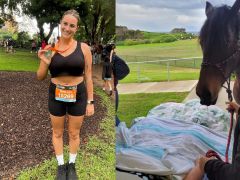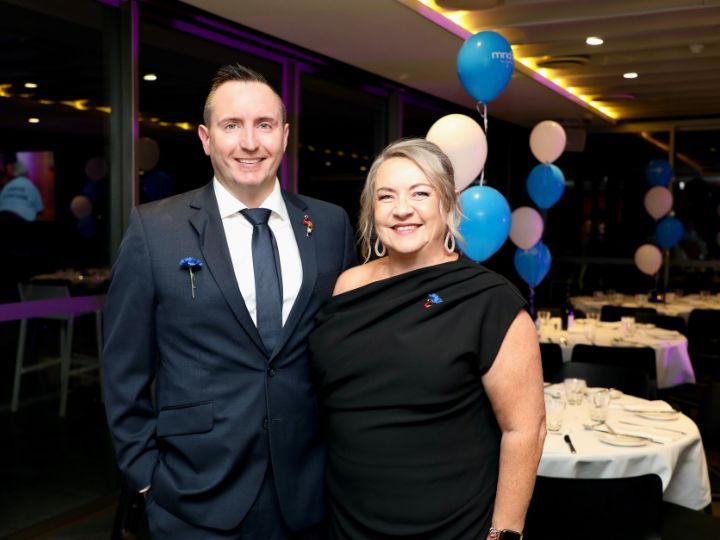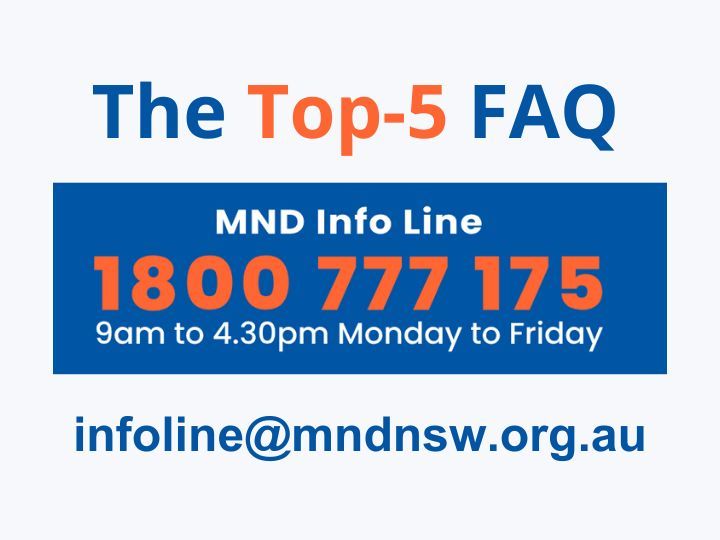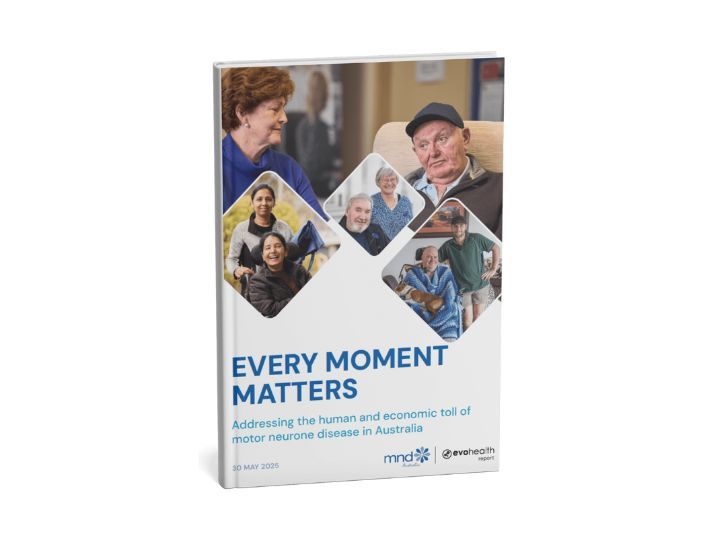Shelley is putting in a mega effort to run 700km in 3 months to raise awareness about MND, and raise vital funds for MND NSW so we can be there for people living with motor neurone disease at every stage of their MND Journey. You can support Shelley by making a donation at mndblue.org.au/shellsmarathon
Over 6 years ago I had my first experience with Motor Neurone Disease as a carer and budding health professional. Since then, I have been so privileged to work with and care for clients with MND and support their families as best I can from diagnosis to end of life. This has led me to see such powerful and urgent gaps in our health industry, funding bodies, educational support, and allied health research.
The first client I worked with was Robert, who was one of the smartest and kindest men I knew.
As an 18 year old girl, it was definitely daunting to be introduced to a completely new world of health care; especially one that is palliative and neurodegenerative. I felt comfortable to inquire about MND as I was surrounded by professionals and it was for my own understanding, not my own condition.
This new world is vastly different to patients and their support network; they are learning things they do not want to have to know. Many of my non-health care friends and family are completely unfamiliar with sara stedys and hoists, with thickened fluids and aspirations, with PEG tubes and BiPAPs. Not only do families have to learn all of this, they also have to learn what they need to learn and learn where to find this information and learn how to make sense of medical jargon.
Education as a cornerstone of quality health care is something I will always advocate for, and this is exactly why. Thank you Robert for your grace as I learnt and being one of my greatest teachers. It is an honour to remember you and a privilege to fight for a cure on your behalf.
Sara was another client who truely opened my eyes to the gaps within palliative approaches and the systems that MND exists within.
Often we assume that palliative is a scary word because we associate it with the act of dying; however there is still so much that is filled within the space of palliative care.
Good quality palliative care should focus on bringing about opportunity and empowering patients to maximise their quality of life with intention. For Sara, that looked like having a specialised saddle and hoist so she could ride her horse, then having ramps put into the arena so she could watch her daughter ride, and finally having her horse visit her at the Palliative Care Unit.
Palliative care is one of the most special things we can do for each other, and it is also one of the most misunderstood areas of health.
I sat in on a few NDIS meetings with Sara and it was always surrounded by some very emotional days. The stress of fighting for what she urgently needed to stay alive and the disappointment when it wasn’t given to her broke my heart.
It was frustrating to have spent so much time preparing and gathering necessary documentation from allied health staff that wasn’t even read prior to the meeting. Sara asked for me to speak on her behalf in some of those meetings when she was too breathless and too emotional - however, what if there isn’t a support person with sufficient medical knowledge present? How are we supposed to advocate then?
What I wish to see is NDIS workers who have substantial knowledge on health conditions and their practical implementations. I want time to be allocated so necessary documents that allied health have put hours into forming will be read and considered prior to meetings. Most of all, I don’t want basic care and human dignity to be such a big fight. Sara taught me how to be an advocate and I am honoured to have been trusted with supporting her and her family.
Tony and Ray were two important clients who reminded me that education is foundational to quality health care. Both these men were newly diagnosed with MND when I met them and required to navigate the world of allied health services, new medication management, unclear prognosis, and a whole bunch of data to make sense of. It was hard to see Tony’s wife give up on My Aged Care services because the wait time was too long, and spent their hard-earned retirement funds into equipment that was only used for a few weeks.
The situation for Ray was moderately better - he was able to link in with MND NSW and have access to their FlexEquip resources, and I was able to put through an urgent My Aged Care referral for services. The Commonwealth Home Support Program now exists for clients to still have some support while awaiting Home Care Package funding, but the process of change of circumstance is still just as frustrating.
A comfort I often provide patients and families when they feel lost and uncertain is that it is my job to know all this information and navigate the blind spots in the system. However, patients shouldn’t need a degree and health care career to have their basic needs met. They should be supported to know their prognosis from the start, with necessary knowledge on necessary allied health and pain management strategies.
There needs to be more direction and future planning right from the start because it is just too sad to fight a disease without any hope.
I am beyond grateful for the people who have already donated and those who have physically (and emotionally) run by my side these past 6 years. Most of all, I am grateful for those who have listened to my passionate rambles and responded to my blog posts with their own experiences. 6 years after meeting Robert, I am an occupational therapist specializing in chronic disease palliative care with the aim of contributing to Motor Neurone Disease research,
educational opportunities, and family support. These clients and their families have changed my life and I owe it to them to advocate now that they are no longer able to.




